At HoCoSo, we anticipate this next chapter in the history of hospitality to be one of discovery; of finding new ways to establish our industry on a dramatically more sustainable footing; of catching the wave of innovation; of utilising technology effectively; and of nurturing our industry’s most valuable asset – people.
Based on this, HoCoSo CONNECT is back with a new five-programme series, focusing on opportunity, solutions and best practices. Our second discussion explored innovative, creative and entrepreneurial mindsets.
Hosting the roundtable discussion was HoCoSo’s Co-founder and Chairman, Jonathan Humphries. He was joined by some of our industry’s bright minds.
In the first part of ‘Exploring Creative and Entrepreneurial Mindsets’, Jonathan spoke with Marc Jongerius, Co-founder of Zoku, a re-invented apartment hotel concept, about the brand’s highly-effective build, measure, learn, loop system. He then addressed the issue of outsourcing existing services to guests with Cristoph Wondraczek, Co-founder of The Hamlet, a series of studios comprised of an all-purpose single-double bedroom apartment format. The topic then switched to Jean-Paul Herzog, a veteran of the hospitality industry with over 40 years of experience as GM and later CEO about the ways operators can better offer their guests a more hospitable stay. The feature concluded with a history of global pandemics and the lessons that could be learned from Robert Godwin, Lamington Group’s managing director, and founder of room2 hometels.
What follows is the second part of the series.
READ PART 1 – Where the rubber meets the road; Novel and proven hospitality strategies that work HERE.
Forging new alliances
Looking beyond the horizon, at this point in time is quite difficult, especially during a climate requiring a complete overhaul of some key strategies that had previously served the owners and operators well, but have recently proven to require some attention in moving forward. Addressing these issues, Christabelle Morgan, International Hotel Development and Director, Aparthotels Adagio and avid horseback rider explained the tricky position the pandemic had left her in, “It’s true that we are super lucky because of our extended stay setup, which speaks volumes to the resiliency of our product and business model. In addition, that same model afforded us the ability to continue operations without fail while breaking even at 15-20 percent occupancy.
However, the point on which I personally am working a lot, is finding more efficient ways of conducting business transactions with West European funders, especially in the UK, who are willing to share the risk and in so doing, grow their profit. On a more promising note, we started connecting with partners in Germany, Switzerland and the Netherlands willing to be more flexible in terms of requiring a minimum amount of guarantees, as well as laxer performance clauses.”
Being a firm believer that the best deal is one where all concerned parties’ benefit, Christabelle got confirmation that diversity could be key in minimising so said risk. “What we acknowledgeg again is focusing solely on corporate guests, like our Parisian properties because of the specificity of the demand, has driven us to really suffer. Balancing guests’ portfolio to include transient, leisure, domestic, corporate and international travellers is more than ever central.”
Adopting the novel vs. recycling the dated
By nature and in general, people are not risk takers due in great part to the fact that any idea one may come up with, has already been attempted by someone somewhere. Therefore, adopting tried and test notions automatically becomes a welcome possibility as opposed to embracing a potential novelty that may or may not prove suitable or even successful.
Debating that difference, is Seán Worker, an ardent supporter of the ‘Get Things Done’ philosophy and a true believer in the power collaboration and connection have to achieve amazing results. With more than 25 years of experience across the hospitality, franchising, property and technology sectors, Seán has worn many hats and continues to operate in various capacities from CEO and founder to book author and global citizen.
In questioning the readiness of owners and operators to try ‘new’ things, he maintains that, “There is, in the interactions with the clients we’re working with, confusion between adaption-innovation versus response-reaction. In other words, how many of the emerging ideas that have come to light in the past year from within the industry are a reaction and how many of these are true innovations?” he wondered.
With the giddiness of a schoolboy eager to reveal a secret none of his classroom friends seem privy to, Marc Jongerius, co-founder and managing director of Zoku, who harbours a passion for realising a brand’s full potential in uniquely-imaginative ways, took the lead explaining, “I think it’s important to highlight that difference, especially since innovation is such a big buzzword. Everybody calls everything innovation, but sometimes it’s just a tweak or a response. On the other hand, one example I can share, which I have to admit is due in part to COVID-19, is a concept that Zoku’s innovation team recently launched called, ‘subscription living’. It is based on feedback from our target audience, global nomads, who want to live and work from different cities without having to lunge their own ‘stuff’ around with them wherever they go, which they consider to be a drag. More importantly, they see ‘living’ as a service, which for us is a new reality laden with potential. To accommodate this trend, we now have a subscription living package offered allowing them the opportunity to work and live for a month in Amsterdam, Copenhagen, Vienna and maybe later, Paris.”
Mindsets, headspace and fostered creativity
Picking up on that, Jonathan wondered what the other elements are that factor into the decision-making process when it comes to adopting or innovating. “What’s clear, is that there are plenty of available opportunities, as well as potential in terms of what we can do. And there’re many innovations that either we will be creating or will be created. What is also important, is the mindset behind the decision-making process. After all, the leaders who are most likely to take advantage of such opportunities going forward are those who are in the right headspace from a mindset perspective within their teams and within their organisations.”
Another factor he highlighted to better understand the thinking behind the decisions being taken, is somewhat surprising though necessary in strategizing for an uncertain future. Setting the scene, he explained that after HoCoSo started offering more encompassing holistic solutions, him and his team learned, upon visiting clients to brainstorm that, “In most cases, clients actually admit that they don’t know what they need anymore, but are certain that they need help and that is a great place to start addressing the matter in a serious and open way.”
While applying the ‘build, measure, learn, loop’ strategy has proven to have been an efficient and thought-provoking tool that ‘magically’ generates its own momentum within a team’s organization, the wellbeing of the individual members comes into question when measuring that success.
It’s a reality that Robert Godwin, Lamington Group’s managing director and founder of room2 hometels. Clarifying, he said, “Coming out of COVID-19, I think we will realise how important people are to organisations. The pandemic has awoken everyone to the value and the importance of mental health, as well as the need for creating the best workplace environment in which employees can flourish. In so doing, organisations would really be tapping into the potential their workforce has in-house. As a result, and over time, these little things will stack-up to build better and happier groups of free-thinkers and creatives. Ultimately, a happy and fulfilled workforce will clearly reflect on the output generated.”
The only pertinent question in that regard, Jonathan reasoned, is how to create that environment of trust and safety that allows employees to fail, that allows them to try new things, that allows them to be brave without being penalised for it? While this may sound surprising, the answer put forth was so simple, it felt incredulous.
It came by way of man who operated in 35 countries on building leadership capability and supporting teams and individuals to unlock their greatest potential. Global Experiential Leadership Trainer and Behaviour-based Executive Coach, Patrick Ghielmetti explained, “I use the ‘taking inventory method’,” he clarified. It’s a term he coined and is so simple, that anyone can apply it at any time and just about anywhere. “What happens is, I gather all team members in a room and open the floor to whatever concerns they may have. We discuss what is and isn’t working right now. We also take judgement out of the equation and allow a very open environment of frank discussion, which is also emotionally-safe and authentic. This generates new team dynamics that leads to team cohesion, effectiveness and ultimately new innovative results.”
More power to CEOs
The final subject tackled in conclusion of this session, goes a long way to ensuring that any kind of approved internal input is afforded a space to propagate and grow. While CEOs and managing directors are seen as the ultimate deciders of what goes and what doesn’t, the reality of the matter is more complex, especially within larger groups or global networks. It is an inherent problem to large corporations, which, prior to COVID-19 was seen as a bottleneck of sorts to swift and timely execution of company rollout strategies.
The people in charge, Jonathan argued, “Are the most informed to make such calls. Also, and because they are in direct daily contact with their staff, they are able to affect necessary change in a timely fashion, which today is more relevant than ever before. Such flexibility and autonomy can only be possible when moving away from the command-and-control model that currently dominates most organisations.”
Acknowledging such frequently untapped potential, Jean-Paul Herzog former President of Hilton Middle East and Africa, veteran of the hospitality industry with over 40 years of experience as GM and later CEO of 130 Scandic Hotels noted, “It is very important to keep in mind that throughout the past year, GMs were empowered again to a greater extent and have proven their mettle quite successfully. That is why, big corporations need to listen more and in so doing, would unearth great potential that has always been available to them.”
Voicing her conviction of the power managers hold in truly making a positive difference within an organization, Eliane Yun Wang, GM at La Clef Champs-Elysees Paris, career coach, guest lecturer and Chinese market specialist emphasized, “Decisions issued from HQ often require months and in some cases, even years to trickle through. On the other hand, within the last year, things took significantly less time, which is why we were able to get much more done. That’s because we were at the front line and truly saw what people wanted and adapted accordingly without the go-ahead from HQ.”
The jury on a host of topics discussed is still out and only time will tell what strategies will take the hospitality industry by storm and which will be shelved. However, what is clear, is the fact that the best solution to a problem may not always be the most suitable one for all organizations.
Repurposing dead space offers a plausible and workable resolution to introducing novelty to a brand, retuning antiquated business models is a reality that offers plenty of growth opportunities and empowering GMs with additional room for decision-making could prove to be a more efficient way to affect change in keeping with the times.
Part 2 – Key takeaways
- The leaders who are most likely to take advantage of such opportunities going forward are those who are in the right headspace from a mindset perspective within their teams and within their organisations.
- In most cases, clients actually admit that they don’t know what they need anymore, but are certain that they need help and that is a great place to start addressing the matter in a serious and open way.
- The pandemic has awoken everyone to the value and the importance of mental health, as well as the need for creating the best workplace environment in which employees can flourish.
- Throughout the past year, GMs were empowered again and have proven their mettle quite successfully. That is why, big corporations need to listen more and in so doing, would unearth great potential that has always been available to them.
About the author
Jad Haidar
Leveraging over 20 years of writing as a seasoned journalist, Jad has interviewed globally reputed personalities in the advertising, communication and hospitality industries. He is a storyteller at heart, crafting balanced and informative articles for readers. He was the features writer for ArabAd and Hospitality News magazines in the Middle East for the past 10 years and is currently a webinar writer for HoCoSo. Before becoming a journalist, he spent 5 years teaching English. He holds a B.A. in English Literature and communicates in 4 languages.
About HoCoSo
HoCoSo are advisors with a difference.
We create tailor-made and innovative solutions for clients’ hospitality-led projects by bringing together the optimum team of sector specialists.
Jonathan Humphries, Chairman and Owner of HoCoSo, and his direct team specialize in the extended-stay, co-living, and hotel-alternatives hospitality market; luxury, lifestyle and boutique hotels; and resort developments in Europe, the Middle East and Africa (EMEA). Our strengths lie in the following core services:
- Product & Concept Creation, for portfolio & individual asset developments.
- Strategic Development Projects with a focus on new-market / new-concept business expansion planning, operator selection, market and financial feasibility studies.
- Transformative Asset Management for brand re-positioning, asset re-evaluation and concept re-structuring.
- Hospitality Education for companies and academic institutions, with a focus on bespoke course development, training and teaching.
- Workshops, Keynotes and Conference Moderating for boards, leading international conferences and incubators.
During the covid19 crisis, HoCoSo launched HoCoSo CONNECT, an initiative aimed at bringing the industry together to brainstorm and collaborate; HoCoSo CONVERSATION, a podcast channel encouraging the discussion with thought leaders from around the globe, for the hospitality industry; and, in collaboration with Atlas Coaching and Cervus Leadership Consulting, we also launched the Hospitality Resilience Series , a combination of online events, insights and discussions aimed at helping build your personal resilience and inner immunity.



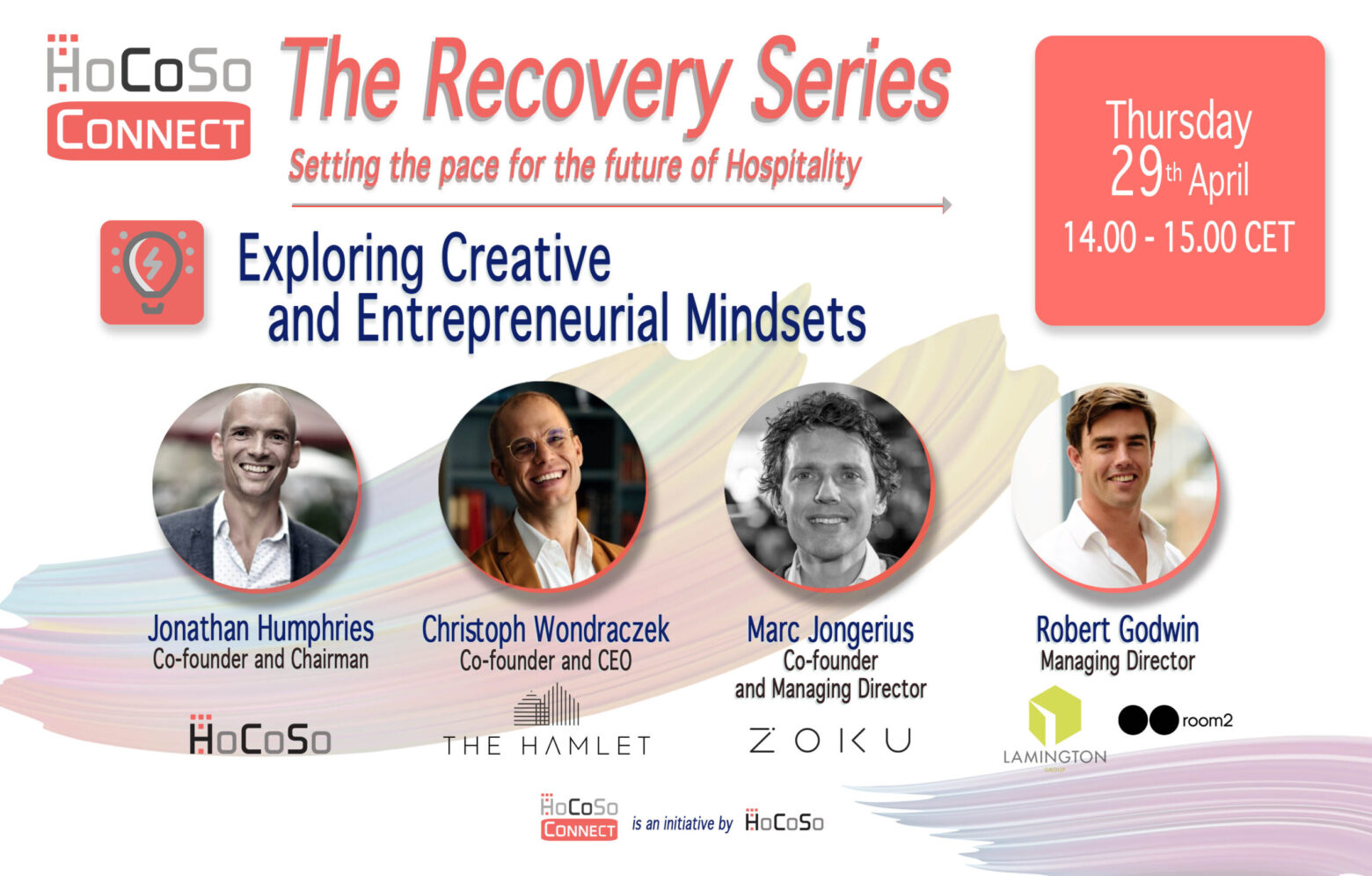
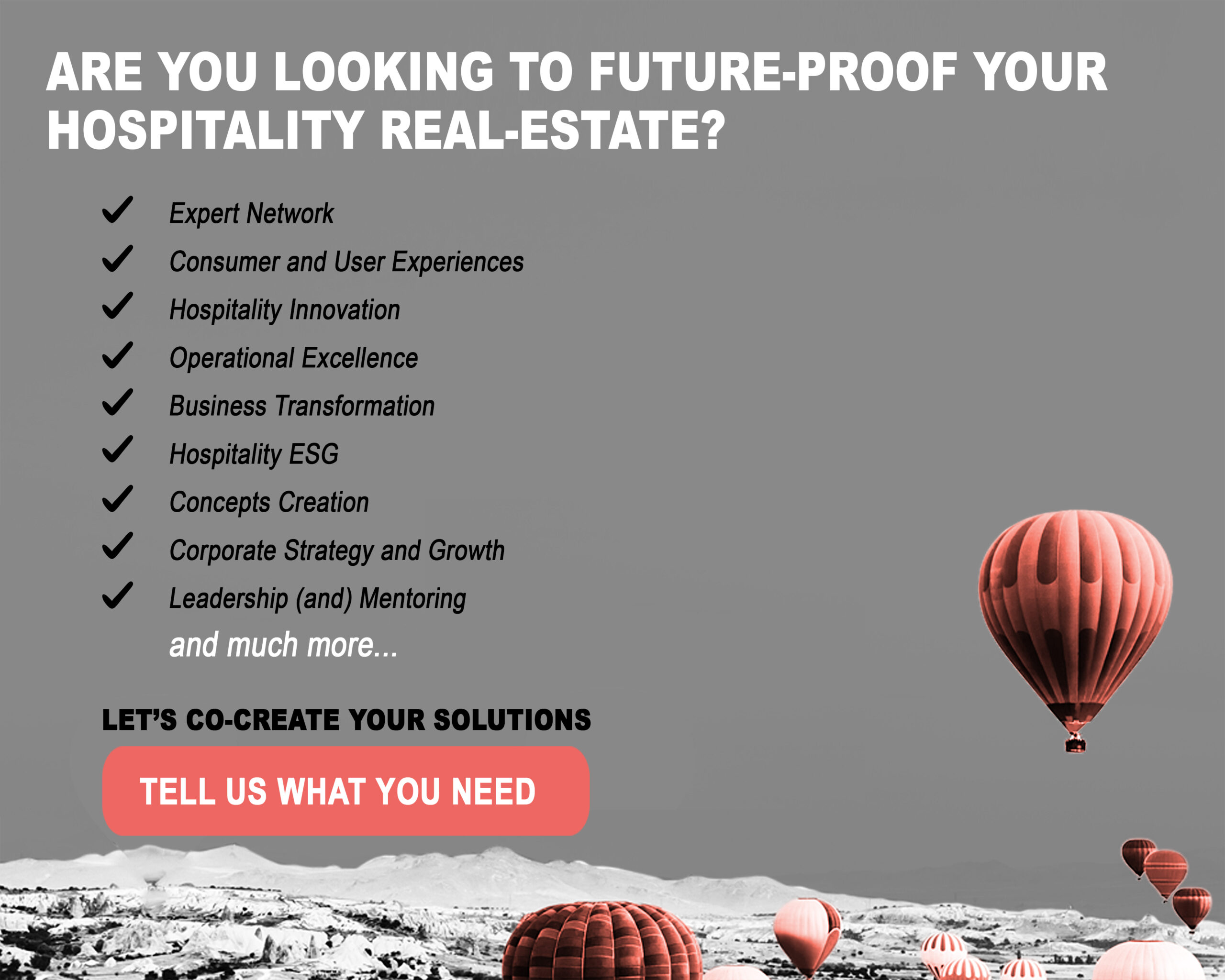
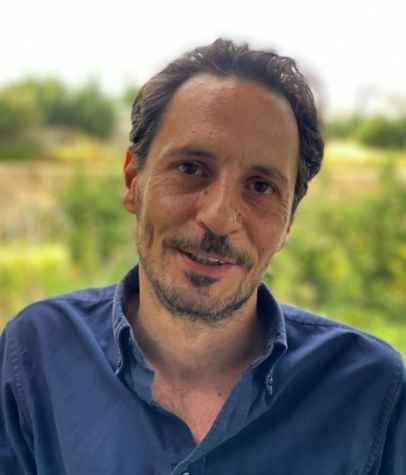
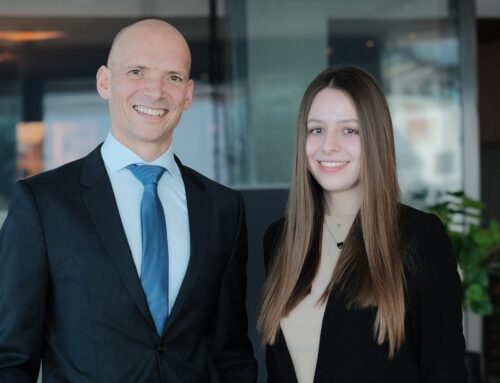


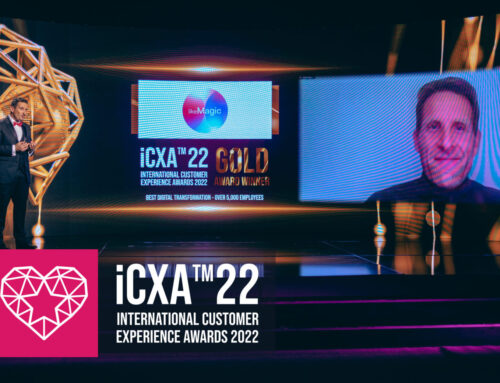
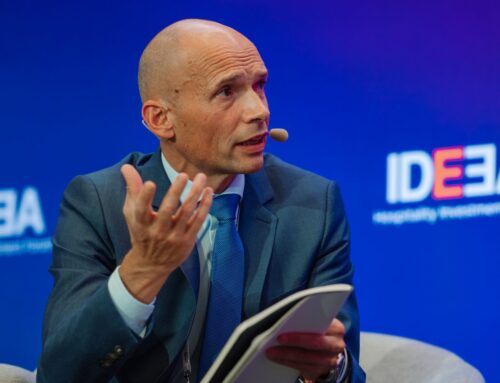
Leave A Comment